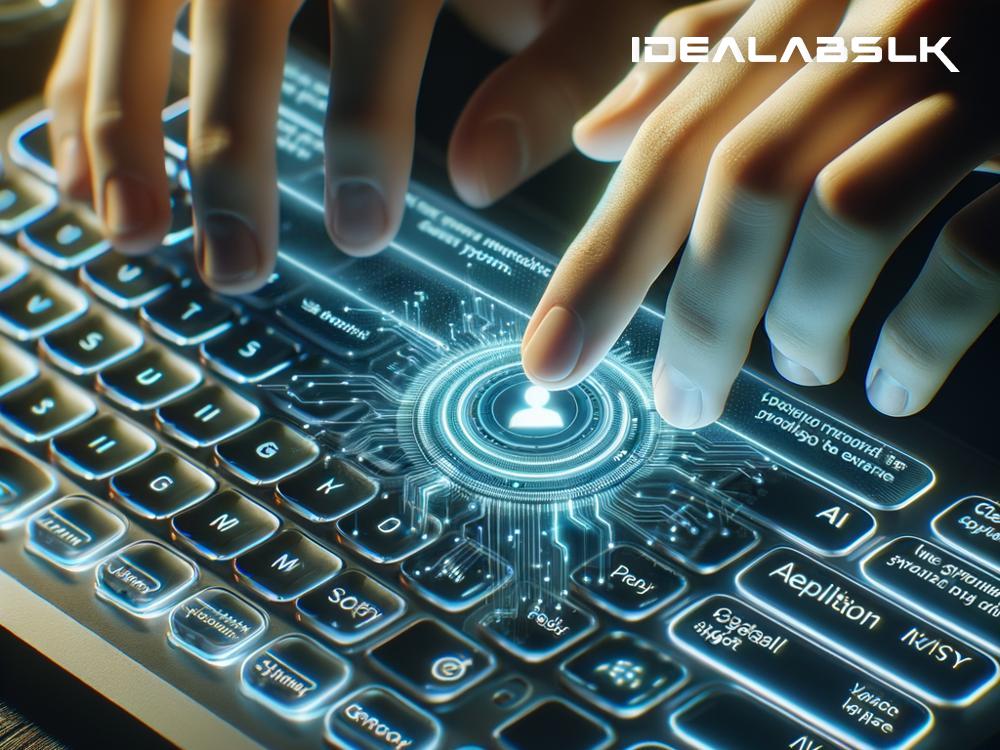AI-Powered Typing Assistance on Smart Keyboards: Making Every Keystroke Count
In today's fast-paced digital world, typing has become an intrinsic part of our daily lives. Whether you're firing off a quick text message, drafting an email, or preparing a report, the ability to type quickly and accurately has never been more crucial. Thankfully, with the advent of Artificial Intelligence (AI), smart keyboards are revolutionizing the way we type. Let's explore the magic of AI-powered typing assistance and how it makes our digital communication smoother and more efficient.
The Dawn of Smart Keyboards
Gone are the days when keyboards were merely a set of static keys. Today, smart keyboards are equipped with AI that learns from your typing habits, making your typing experience personalized, faster, and less error-prone. These intelligent keyboards can predict words, correct typos, and even suggest grammatically correct sentences, all in real-time. This might sound like something out of a sci-fi movie, but it's the reality of typing in the age of AI.
How AI-Powered Typing Assistance Works
Imagine having a super-smart assistant who not only watches over your shoulder as you type but also learns your writing style and preferences. This assistant isn't nosy but incredibly helpful, fine-tuning itself to serve you better with every keystroke. That's essentially what AI in smart keyboards does. Here's a breakdown of how it works:
- Learning Phase: The AI studies how you write, identifying your most-used words, phrases, and even your typical typos.
- Prediction Engine: Based on your typing history, the AI predicts the next word or even the rest of the sentence you're likely to type. This feature can dramatically speed up your typing, especially on mobile devices.
- Auto-Correction: We all make typos, but AI can automatically correct these mistakes, often before you even notice them.
- Grammar and Style Suggestions: Beyond correcting errors, some AI keyboards can suggest changes to improve your sentence structure or make your writing more concise and readable.
The Benefits of AI-Powered Typing Assistance
The perks of this technology extend far beyond simply speeding up your typing. Here are a few standout benefits:
- Increased Efficiency: With predictive text and auto-correction, you can convey your thoughts faster and with less effort.
- Improved Accuracy: Mistakes are part of being human, but smart keyboards can reduce spelling and grammatical errors, polishing your communication.
- Personalized Experience: Since the AI learns from your typing behavior, the assistance you get is highly personalized, making your digital interaction feel more natural and less robotic.
- Accessibility Features: For individuals with disabilities, AI-enhanced keyboards can make typing more accessible and less cumbersome.
The Future of Typing
As AI technology continues to advance, the potential for smart keyboards is boundless. Imagine keyboards that can adapt to different languages on the fly, or offer real-time translation services. Or think about an AI that doesn't just correct your spelling but also suggests content ideas based on the context of your writing. The possibilities are exciting, and we're only scratching the surface of what smart keyboards can do to transform our digital communication.
Overcoming Challenges
Despite all these benefits, the journey of AI-powered typing assistance isn't without its hurdles. Privacy concerns are at the forefront, as the AI needs to process and learn from your typing data. However, many smart keyboard developers are committed to upholding strict privacy standards, ensuring that your personal information remains secure.
Another challenge is ensuring the AI's suggestions remain relevant and do not intrude upon the user's original intent. Continuous advancements in AI and machine learning are helping to refine these predictions, making them more accurate and less intrusive over time.
Conclusion
AI-powered typing assistance on smart keyboards is not just a futuristic concept—it's here, and it's transforming the way we communicate in the digital realm. By embracing this technology, we can enhance our productivity, improve the accuracy of our communication, and enjoy a personalized typing experience that adapts to our individual needs. As we look ahead, the evolution of smart keyboards promises to make our digital interactions more seamless, efficient, and human than ever before. The future of typing is not just about what we type, but how we type, and AI is leading the way.

